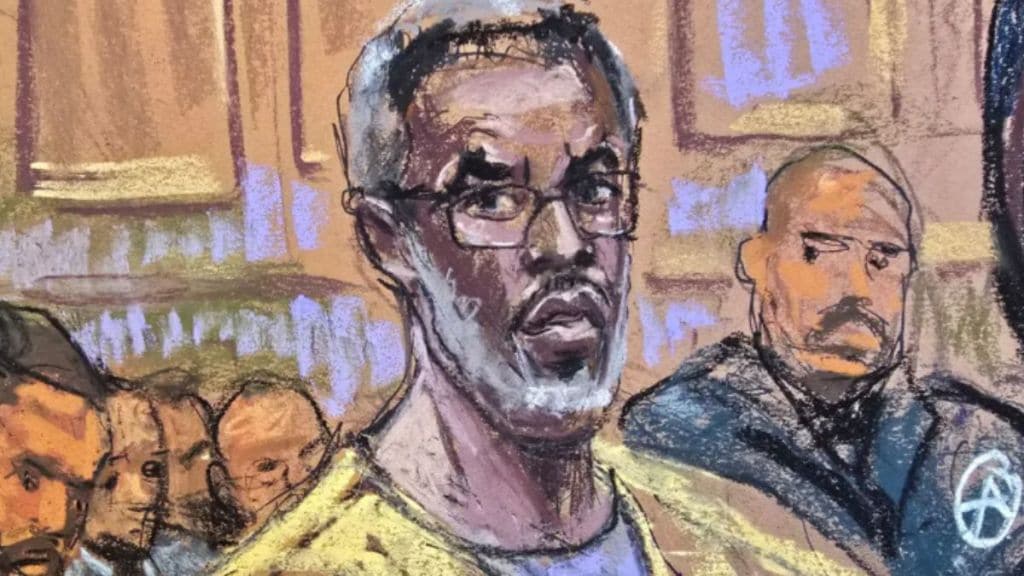Disgraced music mogul Sean “Diddy” Combs has been sentenced to 50 months in prison for prostitution-related crimes, the NY Times reported. The Manhattan federal court verdict came after months of lurid testimony and years of accusations involving sexual assault, racketeering, and other misconduct.
Judge Subramanian made it clear that Combs’ actions required serious punishment. “A substantial sentence is required to send a message to abusers and victims alike that exploitation and violence against women is met with real accountability,” the judge said. Along with prison time, Combs was ordered to pay a $500,000 fine, the maximum allowed.
Diddy’s sentencing: 5 big takeaways
What were the charges against Diddy?
Combs was acquitted of sex trafficking and racketeering charges, but a jury convicted him of two counts of violating the Mann Act, which prohibits transporting people across state lines for prostitution. The charges came after multiple testimonies alleging him of arranging sexual encounters, known as “freak-offs” and “hotel nights” involving his girlfriends and hired escorts.
Diddy’s ex-girlfriend and singer, Casandra “Cassie” Ventura, and another ex-girlfriend, known as “Jane,” both testified about being forced into sexual encounters. They spoke about the emotional toll, saying the experiences left them feeling degraded and, at times, suicidal. Judge Subramanian said, “To Ms Ventura and the other brave survivors that came forward, I want to say first: We heard you.”
Diddy’s apology
For the first time since his arrest in September 2024, Combs addressed the court directly. In his 12-minute speech, he kept apologising. “I beg your honour for mercy,” he said, his voice shaking. “No matter what anybody says, I know that I’m truly sorry for it all.”
He admitted his conduct was “disgusting, shameful and sick.” Watching his family, he apologised to his children and mother: “I failed you as a son, and I’m sorry.”
He also apologised directly to Cassie and Jane, adding: “I want to personally apologise again to Cassie Ventura for any harm or hurt that I’ve caused to her, emotionally or physically.”
Defence vs. prosecution
In Diddy’s case, the prosecutors asked the judge for more than 11 years behind bars, suggesting Combs as a long-time abuser with no remorse. Assistant US Attorney Christy Slavik even mentioned that Combs had scheduled speaking events in Miami for the following week, calling it “the height of hubris.”
Meanwhile, the defence lawyers argued for no more than 14 months, portraying Combs as a changed man who had gotten sober in prison and was mentoring other inmates. His six children spoke in court, often in tears, begging for mercy.
One daughter, D’Lila Combs, pleaded: “Please, your honour, please, give our family the chance to heal together.”
Reaction from Cassie’s lawyer
Cassie’s lawyer, Doug Wigdor, said the sentence acknowledged the seriousness of the crimes: “While nothing can undo the trauma caused by Combs, the sentence imposed today recognises the impact of the serious offences he committed.”
“We are confident that with the support of her family and friends, Ms. Ventura will continue healing knowing that her bravery and fortitude have been an inspiration to so many,” he added.
Dale Cecka, a domestic violence advocate, called the four-year term “horrible” and warned it could discourage future victims from speaking out. Gloria Allred, however, said many victims were relieved Combs wasn’t released on time served, noting: “He could have gotten 20 years. But at least victims will feel comforted knowing he will be in prison for a number of years.”
In a joint release, US Attorney Jay Clayton and Homeland Security Investigations Special Agent Ricky Patel stressed that the case was about more than one man: “The importance to our society of investigating and prosecuting sex crimes extends broadly, and they often accompany other corrosive criminal activity, including human trafficking and drug distribution.”
Diddy’s ex-girlfriend disputes victim label
Virginia Huynh, another former girlfriend, rejected the idea that she was a victim. In a letter filed in court, she stated that she felt pressured to claim victimhood but did not agree with that characterisation. Her letter was presented by Combs’ lawyers to argue for leniency, asking the judge to consider releasing him back to his family.
With time already served and potential credit for good behaviour, Combs could serve as little as two-and-a-half more years before release. The judge also reminded him that prison would be his chance to truly show accountability.


